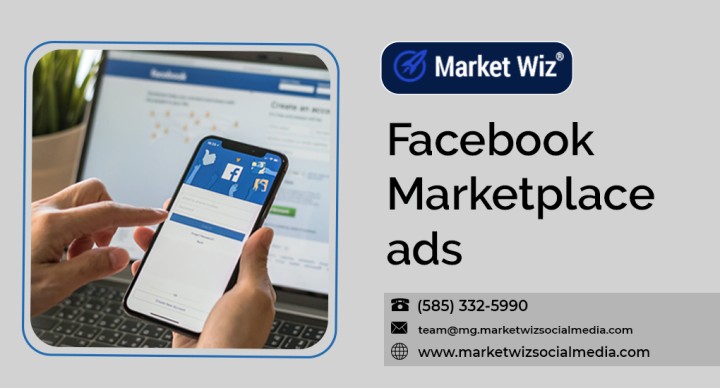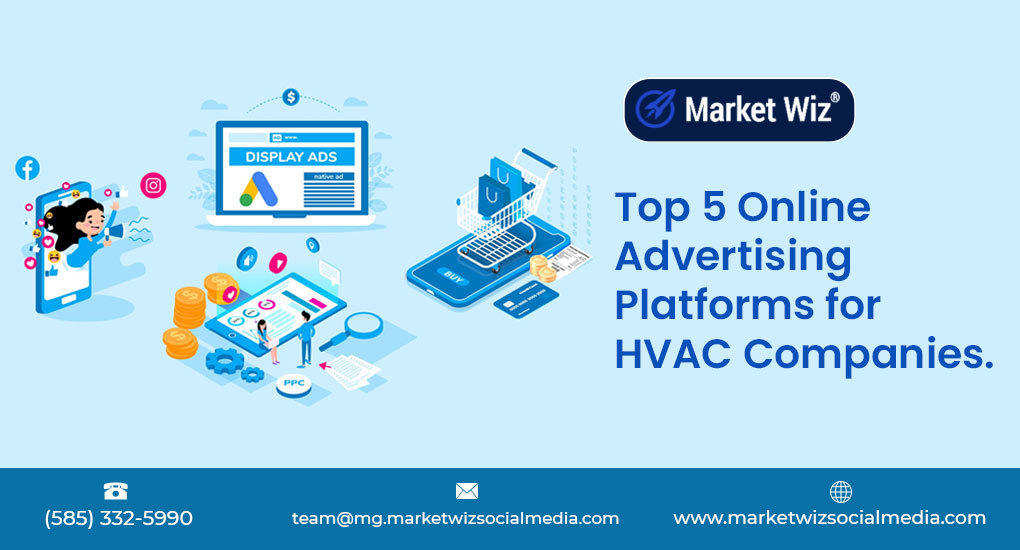Affordable Digital Marketing and Advertising Solutions for Startups
Published on April 27, 2024 | By Market Wiz
Launching a startup is an exciting journey, but one of the biggest challenges is establishing a strong online presence without breaking the bank. Effective digital marketing and advertising are essential for startups to attract customers, build brand awareness, and drive growth. Market Wiz specializes in providing affordable digital marketing and advertising solutions tailored specifically for startups, ensuring you get the best results within your budget. This blog explores various cost-effective strategies and tools that can help your startup thrive in the competitive digital landscape.
1. Social Media Marketing
Leveraging Free Platforms
Social media platforms like Facebook, Instagram, Twitter, and LinkedIn offer startups free channels to promote their brand, engage with customers, and build a community. By consistently posting valuable content, responding to comments, and utilizing platform-specific features such as Stories and Reels, startups can increase their visibility and reach without significant financial investment.
Engaging Content Creation
Creating engaging content is key to attracting and retaining followers. Startups should focus on producing high-quality visuals, informative videos, and compelling captions that resonate with their target audience. Tools like Canva and Adobe Spark offer affordable solutions for creating professional-looking graphics and videos.
Utilizing Hashtags and Trends
Using relevant hashtags and participating in trending topics can significantly boost the visibility of social media posts. Startups should research and incorporate industry-specific hashtags and stay updated with current trends to increase their chances of being discovered by potential customers.
2. Content Marketing
Blogging for Brand Authority
Maintaining a blog on your website is a cost-effective way to establish your startup as an authority in your industry. By publishing informative and valuable articles, startups can attract organic traffic, improve SEO, and engage with their audience. Content management systems like WordPress offer affordable hosting and easy-to-use blogging tools.
Repurposing Content
Repurposing existing content into different formats can extend its reach and maximize its value. For example, a blog post can be turned into a video, infographic, or social media snippets, allowing startups to reach different audience segments without the need to create entirely new content.
Guest Blogging and Collaborations
Collaborating with other bloggers and industry experts through guest blogging can help startups gain exposure to new audiences. This strategy not only builds backlinks for SEO but also establishes your startup's credibility by association with established voices in your field.
3. Email Marketing
Building an Email List
Building a targeted email list is essential for effective email marketing. Startups can collect email addresses through website sign-ups, content downloads, and social media promotions. Tools like Mailchimp and SendinBlue offer affordable plans for managing and segmenting email lists.
Personalized Email Campaigns
Personalizing email campaigns based on user behavior and preferences increases engagement and conversion rates. Startups should utilize segmentation and automation features to send tailored messages, product recommendations, and special offers to their subscribers.
Automated Drip Campaigns
Automated drip campaigns nurture leads by sending a series of pre-scheduled emails that guide recipients through the sales funnel. This strategy ensures consistent communication with potential customers, building trust and increasing the likelihood of conversion without the need for manual intervention.
4. Search Engine Optimization (SEO)
Keyword Research
Conducting thorough keyword research is fundamental for SEO. Startups should identify relevant keywords that their target audience is searching for and incorporate them naturally into their website content, meta tags, and headings. Tools like Google Keyword Planner and Ubersuggest offer free and affordable options for keyword research.
On-Page SEO Optimization
On-page SEO involves optimizing individual web pages to rank higher in search engine results. This includes optimizing title tags, meta descriptions, headers, and image alt texts. Ensuring that your website is well-structured, mobile-friendly, and has fast load times also contributes to better SEO performance.
Building Quality Backlinks
Backlinks from reputable websites signal to search engines that your site is trustworthy and authoritative. Startups can build quality backlinks by creating valuable content that others want to link to, reaching out to industry influencers for collaborations, and participating in relevant online communities and forums.
5. Pay-Per-Click (PPC) Advertising
Targeted Advertising Campaigns
PPC advertising allows startups to target specific demographics, locations, and interests, ensuring that their ads reach the most relevant audience. Platforms like Google Ads and Facebook Ads offer flexible budgeting options, allowing startups to start with small campaigns and scale up as they see results.
Optimizing Ad Spend
Optimizing ad spend involves continuously monitoring and adjusting campaigns to maximize ROI. Startups should analyze performance data, experiment with different ad creatives and targeting options, and allocate more budget to high-performing ads while pausing or tweaking underperforming ones.
A/B Testing
A/B testing different elements of PPC ads, such as headlines, images, and call-to-actions, helps determine which variations perform best. This data-driven approach ensures that startups are investing in the most effective ad components, enhancing overall campaign success.
6. Influencer Marketing
Partnering with Micro-Influencers
Partnering with micro-influencers who have smaller but highly engaged audiences can be a cost-effective way for startups to promote their products or services. Micro-influencers often charge less for collaborations and have higher engagement rates, making them valuable partners for building brand awareness.
Authentic Collaborations
Authentic collaborations where influencers genuinely use and endorse your product can lead to more trustworthy and effective marketing. Startups should focus on building long-term relationships with influencers who align with their brand values and can create authentic content that resonates with their audience.
Leveraging User-Generated Content
User-generated content from influencer partnerships can be repurposed across various marketing channels, enhancing credibility and providing social proof. Encouraging influencers to share their experiences with your brand helps attract new customers and build a community around your startup.
7. Marketing Automation
Automating Repetitive Tasks
Marketing automation tools can help startups save time by automating repetitive tasks such as email sending, social media posting, and lead nurturing. Tools like HubSpot, Mailchimp, and Buffer offer affordable automation features that streamline marketing efforts and improve efficiency.
Lead Nurturing
Automated lead nurturing campaigns guide prospects through the sales funnel by sending timely and relevant content based on their interactions and behaviors. This personalized approach increases the chances of converting leads into customers without the need for constant manual effort.
Personalized Customer Journeys
Marketing automation allows startups to create personalized customer journeys by segmenting audiences and delivering tailored messages at each stage of the buyer’s journey. This ensures that customers receive the right information at the right time, enhancing their experience and increasing the likelihood of conversion.
8. Affiliate Marketing
Building an Affiliate Program
Affiliate marketing enables startups to expand their reach by partnering with affiliates who promote their products or services in exchange for a commission on sales. This performance-based approach ensures that startups only pay for results, making it a cost-effective marketing strategy.
Recruiting Relevant Affiliates
Recruiting affiliates who are relevant to your industry and target audience can maximize the effectiveness of your affiliate program. Startups should focus on finding affiliates who have a genuine interest in their products and can reach potential customers effectively.
Tracking and Managing Affiliates
Using affiliate tracking software ensures that startups can monitor affiliate performance, track sales, and manage commissions accurately. This transparency helps build trust with affiliates and encourages them to promote your brand more effectively.
9. Budget-Friendly Marketing Tools
Free and Low-Cost Tools
Startups can leverage a variety of free and low-cost marketing tools to enhance their digital marketing efforts without exceeding their budget. Tools like Canva for design, Hootsuite for social media management, and Google Analytics for performance tracking offer robust features at minimal or no cost.
Utilizing Freemium Models
Many marketing tools offer freemium models, allowing startups to access basic features for free and upgrade to premium plans as their needs grow. This approach enables startups to start with essential functionalities and scale their tool usage as their marketing efforts expand.
Open-Source Solutions
Open-source marketing solutions can provide startups with powerful features without the hefty price tags associated with proprietary software. Platforms like WordPress for website management and Mailchimp for email marketing offer open-source options that are both flexible and cost-effective.
10. Local Marketing
Optimizing for Local SEO
Local SEO helps startups attract customers from their specific geographic area. By optimizing their website for local search terms, creating and managing Google My Business profiles, and building local citations, startups can improve their visibility in local search results and attract nearby customers.
Participating in Local Events
Participating in local events, such as trade shows, community gatherings, and networking events, can help startups build brand awareness and establish connections within their community. These events provide opportunities for face-to-face interactions and can generate word-of-mouth referrals.
Leveraging Local Partnerships
Forming partnerships with other local businesses can enhance marketing efforts and expand reach. Startups can collaborate on joint promotions, co-host events, or offer bundled services, creating mutually beneficial relationships that drive growth for all parties involved.
11. Analytics and Measurement
Tracking Key Metrics
Monitoring key marketing metrics is essential for assessing the effectiveness of marketing strategies. Startups should track metrics such as website traffic, conversion rates, email open rates, social media engagement, and ROI to gain insights into what’s working and what needs improvement.
Using Google Analytics
Google Analytics is a powerful, free tool that provides comprehensive data on website performance, user behavior, and traffic sources. Startups can use this data to make informed decisions, optimize their website, and refine their marketing strategies for better results.
Setting Up Dashboards
Setting up customized dashboards allows startups to visualize their key metrics in an easily digestible format. Tools like Google Data Studio and Tableau offer affordable options for creating interactive dashboards that provide real-time insights into marketing performance.
12. Customer Engagement
Interactive Content
Creating interactive content, such as quizzes, polls, and surveys, can significantly boost customer engagement. Interactive content encourages users to participate actively, providing valuable insights and fostering a deeper connection with the brand.
Engaging Through Social Media
Engaging with customers on social media platforms by responding to comments, hosting live sessions, and sharing user-generated content can enhance relationships and build a loyal community. Startups should prioritize authentic interactions to create meaningful connections with their audience.
Loyalty Programs
Implementing loyalty programs incentivizes repeat business and rewards loyal customers. Startups can offer discounts, exclusive offers, or points-based systems to encourage customers to continue engaging with the brand and make repeat purchases.
13. Viral Marketing
Creating Shareable Content
Creating content that is highly shareable increases the chances of it going viral, amplifying brand reach organically. Startups should focus on producing entertaining, informative, or emotionally resonant content that encourages users to share it with their networks.
Leveraging Trends and Memes
Leveraging current trends and popular memes can help startups tap into existing conversations and gain visibility. By creating timely and relevant content that aligns with these trends, startups can increase their chances of being noticed and shared widely.
Encouraging User Participation
Encouraging users to participate in challenges, contests, or campaigns can drive engagement and increase the likelihood of content going viral. Startups can incentivize participation with prizes or recognition, fostering a sense of community and excitement around the brand.
14. Video Marketing
Creating Engaging Videos
Video marketing is a highly effective way to capture attention and convey messages succinctly. Startups can create engaging videos such as product demos, tutorials, testimonials, and behind-the-scenes footage to connect with their audience and showcase their offerings.
Utilizing Live Streaming
Live streaming on platforms like Facebook Live, Instagram Live, and YouTube Live allows startups to interact with their audience in real-time. Live sessions can be used for Q&A sessions, product launches, and interactive events, fostering direct engagement and building trust.
Optimizing Videos for SEO
Optimizing videos for search engines involves using relevant keywords in titles, descriptions, and tags, as well as providing transcripts and engaging thumbnails. This ensures that videos are discoverable through search and can drive additional traffic to the startup’s website.
15. Optimized Landing Pages
Creating High-Converting Landing Pages
Optimized landing pages are crucial for converting visitors into leads or customers. Startups should design landing pages with clear and compelling headlines, concise copy, strong call-to-actions (CTAs), and visually appealing layouts to maximize conversions.
A/B Testing Landing Pages
A/B testing different elements of landing pages, such as headlines, images, and CTAs, helps identify what resonates best with the target audience. This data-driven approach ensures that landing pages are continuously optimized for better performance and higher conversion rates.
Mobile-Friendly Design
Ensuring that landing pages are mobile-friendly is essential, as a significant portion of web traffic comes from mobile devices. Startups should use responsive design principles to create landing pages that provide a seamless experience across all screen sizes.
16. Networking and Partnerships
Building Strategic Partnerships
Building strategic partnerships with complementary businesses can help startups expand their reach and access new customer segments. Collaborating on joint promotions, co-hosting events, or offering bundled services can create mutually beneficial opportunities for growth.
Participating in Networking Events
Participating in industry-specific networking events, both online and offline, allows startups to connect with potential clients, partners, and mentors. These interactions can lead to valuable business relationships and opportunities for collaboration.
Joining Online Communities
Joining online communities and forums relevant to the startup’s industry can help in building brand authority and engaging with a targeted audience. Startups can contribute valuable insights, answer questions, and share their expertise to establish themselves as trusted voices in their field.
17. User-Generated Content
Encouraging Customer Reviews
Encouraging customers to leave reviews and testimonials can enhance credibility and attract new customers. Startups can incentivize reviews through discounts, giveaways, or featuring customer stories on their website and social media channels.
Sharing User Stories
Sharing user-generated stories and experiences helps build trust and authenticity. Startups can highlight how their products or services have positively impacted customers, creating relatable and compelling narratives that resonate with potential clients.
Leveraging Social Proof
Leveraging social proof through user-generated content, such as photos, videos, and testimonials, can significantly boost marketing efforts. Social proof validates the quality and effectiveness of a startup’s offerings, making it easier to attract and convert new customers.
18. Mobile Marketing
Optimizing for Mobile Devices
With the majority of internet traffic coming from mobile devices, optimizing marketing efforts for mobile is essential. Startups should ensure that their websites are responsive, mobile-friendly, and provide a seamless user experience across all devices.
Mobile Advertising
Mobile advertising allows startups to reach users on their smartphones and tablets through platforms like Google Ads, Facebook Ads, and in-app advertising. Targeted mobile ads can drive traffic, increase brand awareness, and generate conversions effectively.
SMS Marketing
SMS marketing is a direct and cost-effective way to reach customers with timely and personalized messages. Startups can use SMS campaigns to promote special offers, send reminders, and engage with customers, ensuring high open and response rates.
19. Branding on a Budget
Developing a Strong Brand Identity
A strong brand identity helps startups stand out in a crowded market. Startups should focus on creating a memorable logo, consistent color scheme, and a clear brand voice that reflects their values and resonates with their target audience. Affordable design tools and freelance designers can assist in developing professional branding elements.
Consistent Messaging
Consistent messaging across all marketing channels reinforces brand recognition and trust. Startups should ensure that their messaging is unified in tone, style, and content, providing a cohesive experience for customers regardless of where they encounter the brand.
Leveraging Storytelling
Storytelling is a powerful tool for building an emotional connection with the audience. Startups can share their founding story, mission, and the challenges they’ve overcome to engage customers and foster a deeper connection with their brand.
20. Conclusion
Launching and growing a startup requires strategic planning and efficient use of resources, especially when it comes to marketing. Affordable digital marketing and advertising solutions, such as social media marketing, content marketing, SEO, email marketing, and PPC advertising, provide startups with the tools they need to build brand awareness, attract customers, and drive growth without overspending.
At Market Wiz, we understand the unique challenges that startups face and are committed to delivering cost-effective marketing strategies tailored to your specific needs. By leveraging the right mix of affordable tools, creative strategies, and expert guidance, we help startups maximize their marketing impact and achieve their business goals. Partner with Market Wiz to navigate the digital landscape efficiently and propel your startup towards sustained success.
Frequently Asked Questions (FAQs)
1. What are affordable digital marketing solutions for startups?
Affordable digital marketing solutions for startups include social media marketing, content marketing, email marketing, search engine optimization (SEO), pay-per-click (PPC) advertising, and utilizing cost-effective marketing tools that maximize reach while minimizing costs.
2. Why is digital marketing important for startups?
Digital marketing is crucial for startups as it helps build brand awareness, reach a wider audience, generate leads, engage with customers, and drive sales. It offers measurable results and scalability, allowing startups to grow their marketing efforts as their business expands.
3. How can startups create a budget-friendly marketing strategy?
Startups can create a budget-friendly marketing strategy by focusing on high-impact, low-cost tactics such as social media marketing, content marketing, SEO, email marketing, and leveraging free or affordable marketing tools. Prioritizing efforts based on goals and measuring ROI can also help allocate resources effectively.
4. What role does SEO play in affordable marketing for startups?
SEO plays a vital role in affordable marketing for startups by improving organic search visibility, driving targeted traffic to the website, and enhancing brand credibility without the ongoing costs associated with paid advertising. Effective SEO can lead to sustainable growth over time.
5. How can content marketing benefit startups on a budget?
Content marketing benefits startups on a budget by providing valuable and relevant content that attracts and engages the target audience. It helps establish authority, improve SEO, generate leads, and nurture customer relationships without significant financial investment.
6. What are some cost-effective social media strategies for startups?
Cost-effective social media strategies for startups include creating and sharing engaging content, leveraging user-generated content, utilizing social media scheduling tools, engaging with followers, participating in relevant groups and communities, and using targeted advertising with small budgets to maximize reach.
7. How can email marketing be used affordably by startups?
Email marketing can be used affordably by startups by building a targeted email list, using free or low-cost email marketing platforms, creating personalized and valuable content, automating campaigns, and segmenting audiences to ensure relevant and effective communication.
8. What are the benefits of using PPC advertising for startups?
PPC advertising offers startups the benefits of immediate visibility, targeted audience reach, measurable results, and budget control. It allows startups to compete with larger companies by targeting specific keywords and demographics, ensuring that advertising spend is directed towards the most effective channels.
9. How can startups leverage marketing automation tools on a budget?
Startups can leverage marketing automation tools on a budget by selecting affordable or freemium platforms, prioritizing essential automation tasks such as email marketing and social media scheduling, and gradually expanding their use of automation as their budget and needs grow.
10. What are some affordable analytics tools for startups?
Affordable analytics tools for startups include Google Analytics for website tracking, Google Data Studio for data visualization, Hotjar for user behavior insights, Mailchimp for email analytics, and social media platform insights for performance tracking without additional costs.
11. How can startups effectively use influencer marketing on a budget?
Startups can effectively use influencer marketing on a budget by collaborating with micro-influencers who have smaller but highly engaged audiences, offering product exchanges or commissions instead of monetary compensation, and focusing on building long-term relationships with influencers who align with their brand values.
12. What are some low-cost advertising channels for startups?
Low-cost advertising channels for startups include social media advertising, content marketing, email marketing, influencer partnerships, search engine marketing (SEM), and participating in local events or online communities relevant to their industry.
13. How can startups maximize their ROI with limited marketing budgets?
Startups can maximize their ROI with limited marketing budgets by focusing on high-impact, low-cost strategies, continually testing and optimizing campaigns, leveraging data-driven insights to make informed decisions, prioritizing efforts that directly contribute to business goals, and avoiding spending on unproven or ineffective channels.
14. What are the advantages of using freemium marketing tools for startups?
Freemium marketing tools offer startups the advantage of accessing essential features without initial costs, allowing them to test and evaluate the tools' effectiveness before committing to paid plans. This approach helps startups manage their budgets while still leveraging powerful marketing functionalities.
15. How important is branding for startups on a budget?
Branding is crucial for startups on a budget as it helps establish a unique identity, build trust with the target audience, differentiate from competitors, and create a memorable impression. Effective branding can drive customer loyalty and word-of-mouth referrals, which are invaluable for growth.
16. Can content repurposing save marketing costs for startups?
Yes, content repurposing can save marketing costs for startups by maximizing the value of existing content. By adapting blog posts into videos, infographics, social media snippets, or podcasts, startups can reach different audience segments without the need to create entirely new content from scratch.
17. What role does customer feedback play in affordable marketing?
Customer feedback plays a vital role in affordable marketing by providing insights into customer preferences, pain points, and satisfaction levels. Startups can use this feedback to refine their marketing strategies, improve products or services, and create more targeted and effective campaigns without additional costs.
18. How can startups use SEO to drive organic traffic cost-effectively?
Startups can use SEO to drive organic traffic cost-effectively by conducting thorough keyword research, optimizing website content and meta tags, improving site speed and mobile-friendliness, building high-quality backlinks, and regularly updating content to maintain relevance and authority in search engines.
19. What are the best practices for startups when implementing digital marketing solutions on a budget?
Best practices for startups when implementing digital marketing solutions on a budget include setting clear and achievable goals, prioritizing high-impact strategies, leveraging free or affordable tools, continuously monitoring and analyzing performance, being adaptable and willing to iterate, and focusing on building strong relationships with customers and partners.
20. How can Market Wiz help startups with affordable digital marketing?
Market Wiz helps startups with affordable digital marketing by offering tailored strategies that maximize impact within budget constraints. Our services include social media management, content creation, SEO, email marketing, PPC advertising, influencer partnerships, and utilizing cost-effective marketing tools to drive growth and achieve business objectives.
Additional Keywords for Your Digital Marketing Agency Website
- Affordable Digital Marketing
- Startup Marketing Solutions
- Digital Advertising for Startups
- Market Wiz Startup Services
- Cost-Effective Marketing
- Startup Growth Strategies
- Budget Marketing Tools
- Affordable SEO Services
- Social Media Marketing for Startups
- Content Marketing on a Budget
- Email Marketing for Startups
- Low-Cost PPC Advertising
- Influencer Marketing for Startups
- Marketing Automation for Startups
- Affiliate Marketing Solutions
- Affordable Analytics Tools
- Local Marketing for Startups
- Customer Engagement Strategies
- Viral Marketing Techniques
- Video Marketing for Startups
- Optimized Landing Pages
- Networking and Partnerships
- User-Generated Content Strategies
- Mobile Marketing for Startups
- Branding on a Budget
- Content Repurposing Strategies
- Customer Feedback Utilization
- SEO Cost-Effective Strategies
- Marketing Best Practices for Startups
- Marketing Consulting for Startups
- Data-Driven Marketing
- Digital Marketing Solutions

















